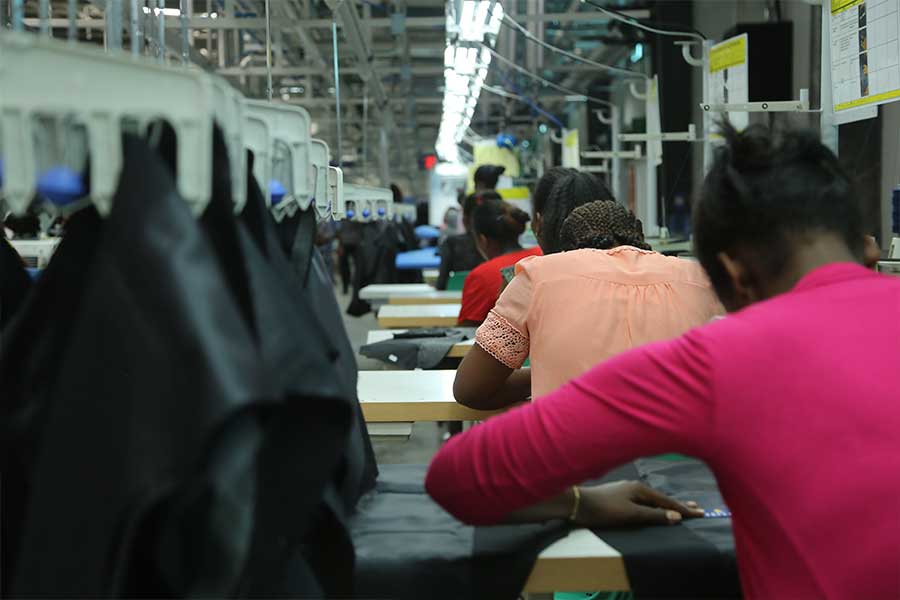
Commentaries | May 06,2023
Dec 29 , 2018
By Hintsa Andebrhan
It would be an understatement to say that Ethiopia’s economic and political situation has gotten worse over the years. But the latter has been far worse than the former. There is tension between the federal and regional governments. The rhetoric coming from most sides of the political rhetoric is ugly and sickening.
Most worryingly, the government is losing its grip over the legitimate exercise of force in the country, and innocent civilians are getting attacked in broad daylight owing to their ethnic persuasion.
Such sociopolitical tensions can persuade us into believing that the macroeconomic problems facing the nation should be put on the back burner. Double-digit inflation, low export performance, debt stress and the absence of a strong private sector do not seem that urgent given that citizens are beginning to feel less safe in their own country.
Indeed, the seriousness of the political malice this nation is facing makes it very hard for the incumbent to spend time on matters that are not directly related to averting the worst case scenario the combination of an uninformed public, a non-assertive security apparatus and egotistical political leaders can bring.
But there is no escaping the fact that all political problems, either partly or wholly, have their roots in economic shortcomings. It can be said that to all the political problems that face the country citizens should contribute their part to orient the country along a more stable path. The economic problems though can only be addressed by a government willing to learn from its past and reform accordingly.
This is because it is the EPRDF’s policies that have led to this sorry macroeconomic state. There may be a high gross domestic product growth rate, but there is enough worrying undulation in the macroeconomic fundamentals to show that the economy is unhealthy and requires stimulation in the form of progressive economic reforms.
The fundamental problems have been poor fiscal and monetary policies. High government spending and deficit financing over the years ensured that inflation picked up, the real rate of the Birr depreciated and investors lost confidence in the currency. This fueled the appetite of the black market, which then dilapidated the government’s foreign currency reserves.
Lax checks and balances between the different bodies of governments also made the possible positive impacts that could have been gained from government spending impossible to be fully realised. It left us with the waste of government resources, delays of projects and poor products.
This all severely impacted the private sector. It was crowded out by public enterprises in credit and foreign currency allocation, but that these ventures were never as profitable as they were promised meant businesses will continue to subsist in an environment that is inimical.
Fortunately, there are already some initiatives underway to improve the business environment with the view that a robust private sector will go a long way to helping the nation generate foreign currency, create employment opportunities and improve tax revenue.
This should be commended full-heartedly and the government edged on to push forward with reforms indispensable to a healthy economy. It should be able to liberalise industries closed to the private sector, take measures to improve the professionalism of the bureaucracy and invest to ensure linkages between industries.
The government at this time should also improve its regulatory capacity. It should be able to come up with new policies that are able to dissuade efforts to move capital away from the country while incentivising its entry into the country.
This could be by opening up the capital account, which will boost investor confidence about the state of the economy, and by printing new 50 Br and 100 Br notes to nip illegal stashing of wealth in the bud.
Prime Minister Abiy Ahmed (PhD) and his administration may be tasked with the mountainous task of keeping this country stable and peaceful, but it should not be forgotten that the economic paralysis is also worrying. It is not just a case of having to lubricate the economy for better performance but correcting the unhealthy distribution of wealth.
PUBLISHED ON
Dec 29,2018 [ VOL
19 , NO
974]


Commentaries | May 06,2023

Sunday with Eden | Nov 29,2020

Viewpoints | Feb 08,2020

Agenda | Oct 24,2020

Verbatim | Aug 21,2021

Commentaries | Mar 14,2020

News Analysis | Jan 05,2020

Editorial | May 18,2024

Commentaries | Aug 08,2020

Editorial | Oct 05,2024

My Opinion | 132041 Views | Aug 14,2021

My Opinion | 128437 Views | Aug 21,2021

My Opinion | 126364 Views | Sep 10,2021

My Opinion | 123987 Views | Aug 07,2021





Dec 22 , 2024 . By TIZITA SHEWAFERAW
Charged with transforming colossal state-owned enterprises into modern and competitiv...

Aug 18 , 2024 . By AKSAH ITALO
Although predictable Yonas Zerihun's job in the ride-hailing service is not immune to...

Jul 28 , 2024 . By TIZITA SHEWAFERAW
Unhabitual, perhaps too many, Samuel Gebreyohannes, 38, used to occasionally enjoy a couple of beers at breakfast. However, he recently swit...

Jul 13 , 2024 . By AKSAH ITALO
Investors who rely on tractors, trucks, and field vehicles for commuting, transporting commodities, and f...

Jul 12 , 2025
Political leaders and their policy advisors often promise great leaps forward, yet th...

Jul 5 , 2025
Six years ago, Ethiopia was the darling of international liberal commentators. A year...

Jun 28 , 2025
Meseret Damtie, the assertive auditor general, has never been shy about naming names...

Jun 21 , 2025
A well-worn adage says, “Budget is not destiny, but it is direction.” Examining t...

Jul 13 , 2025 . By YITBAREK GETACHEW
The Addis Abeba City Revenue Bureau has introduced a new directive set to reshape how...

Jul 13 , 2025 . By BEZAWIT HULUAGER
Addis Abeba has approved a record 350 billion Br budget for the 2025/26 fiscal year,...

Jul 13 , 2025 . By RUTH BERHANU
The Addis Abeba Revenue Bureau has scrapped a value-added tax (VAT) on unprocessed ve...

Jul 13 , 2025 . By NAHOM AYELE
Federal lawmakers have finally brought closure to a protracted and contentious tax de...